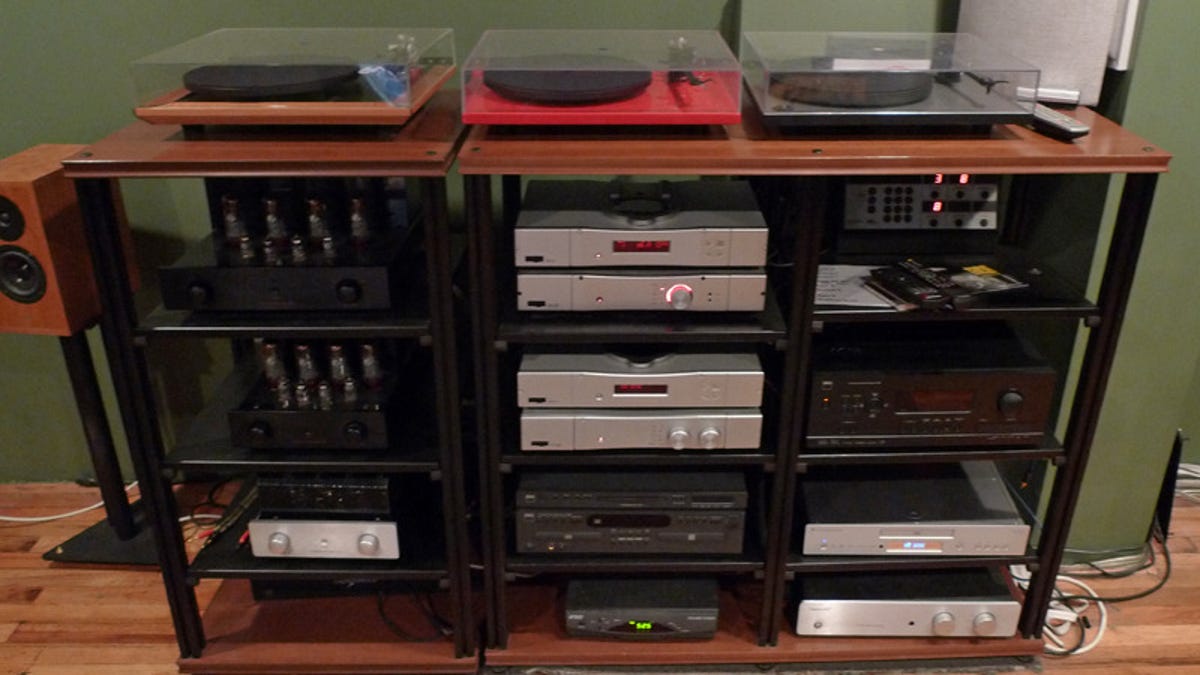As brick-and-mortar audio shops fade away, who loses?
Back in the day, hi-fi buyers auditioned gear with their own two ears. Now, it's about shopping online for the best deal. Is that a good idea?

It's one thing to buy a CD or a toaster oven online, but what about audio components? Wouldn't it be great to compare one speaker with another? With receivers it's impossible to gauge the touch and feel of the controls online. Sure, professionally written reviews can steer you in the right direction, but in the final analysis buying a hi-fi or home theater is mostly about personal taste. Buying "the best" at the cheapest price isn't always the ideal option; I think it should be more about getting the product that's right for you.
Sadly, expert advice isn't so easy to find, now that more and more independent brick-and-mortar audio shops have closed. That's no concern for buyers who happily forgo the advantages offered by the shops in favor of the lowest possible price. The online retailer can easily afford to give greater discounts; they don't have to pay high rent for a showroom, have hundreds of thousands of dollars invested in demonstration units, provide on-site service technicians, and pay sales commissions. They can pass some of their savings onto their customers. Everybody wins, or do they?
I don't think so; it's the buyer who is losing out. Yes, the online discounters and factory-direct companies can always undercut the independent brick-and-mortar guys, but how do their customers know they're buying the speaker, amplifier, or turntable that best suits their needs? Have they listened for themselves and heard three or four competing speakers with their own ears? And if they wind up with a malfunctioning piece of brand new gear, they'll have to deal with it on their own. They won't get a "loaner" to use while they wait for the repair or replacement unit. Hookup questions will be answered by an anonymous person on an 800 line, not by the sales person at the local shop who knows you by name.
Hi-fis and home theaters can be complex, and understanding the interactions of all the gear in the system is far beyond the ability of the average consumer. Human contact with knowledgeable sales and service people is forfeited when you buy online. Long-term customer-store relationships are no longer valued, so the customers are left to figure things out on their own.
So successful online retailers prosper and the customers spend less than they would have with brick-and-mortar shops. That's great, but will the customer wind up with the gear that best suits their needs? I doubt it. Where will they turn for service? Will the system be set up properly?
The race to the bottom has its costs. I'm not claiming that all brick-and-mortar shops serve their customers well, not by a long shot. But the ones that stuck around for more than a decade or so have survived by making most of their customers happy. So if you have to go out of your way to find an independent hi-fi dealer, it might be worth your time.
If you still have a local audio retailer, why not drop by and see what they offer? Listen to and compare speakers, and if you're treated well, be prepared to pay a little more to buy local.
If you still shop at independent or chain brick-and-mortar stores, tell us all about them in the Comments section.

